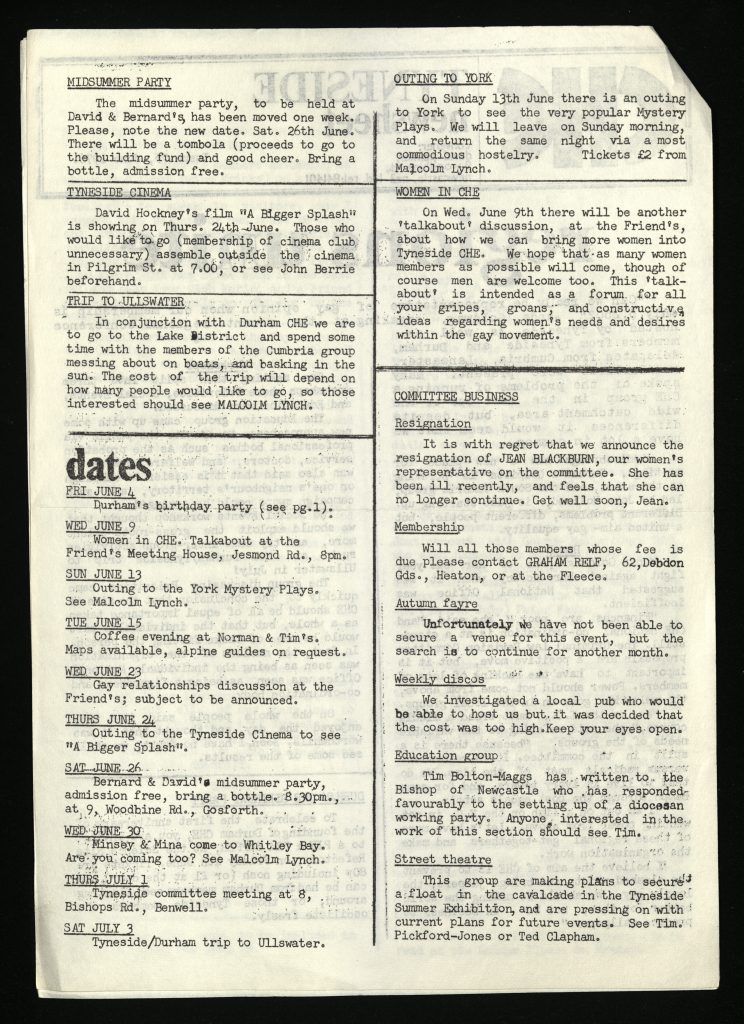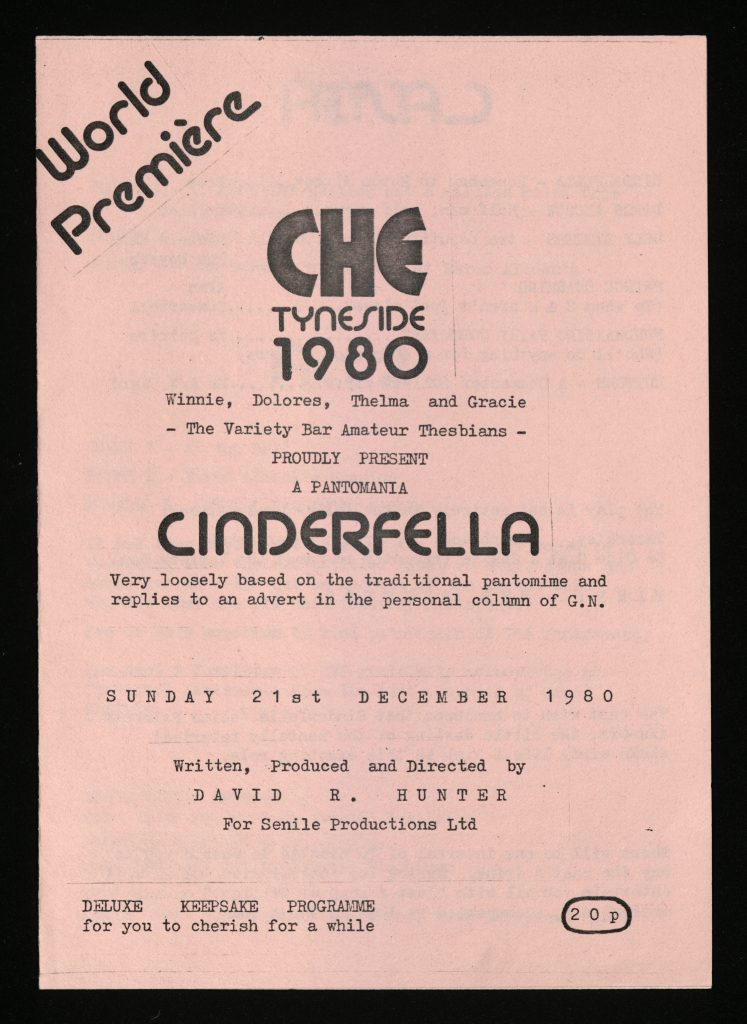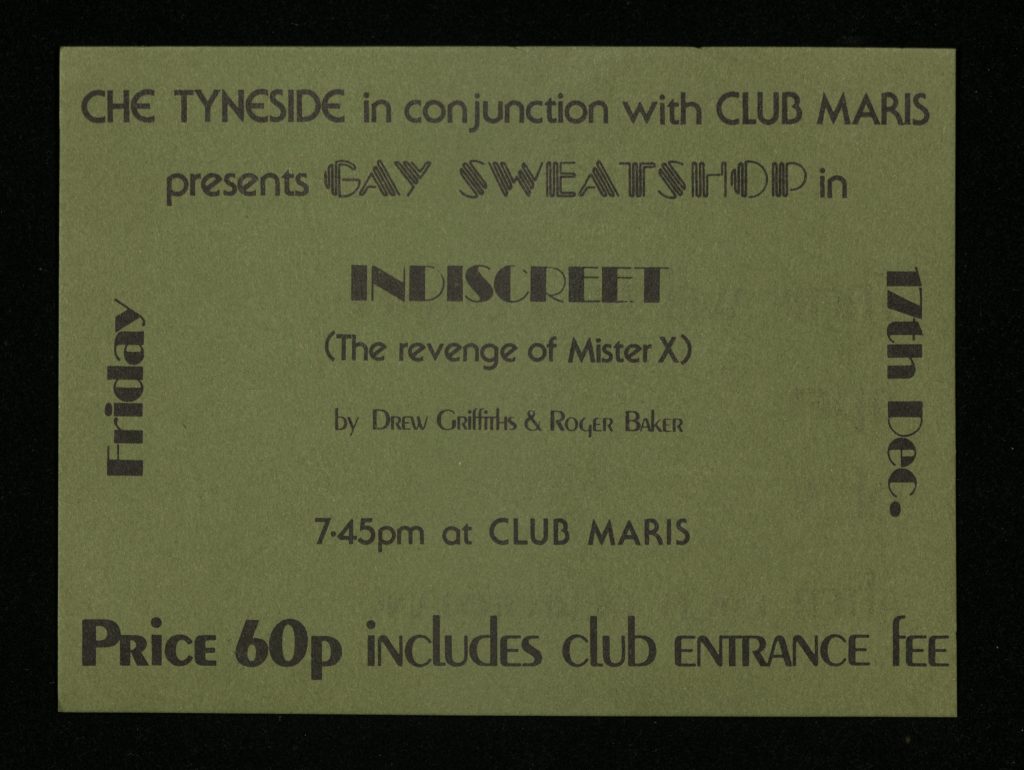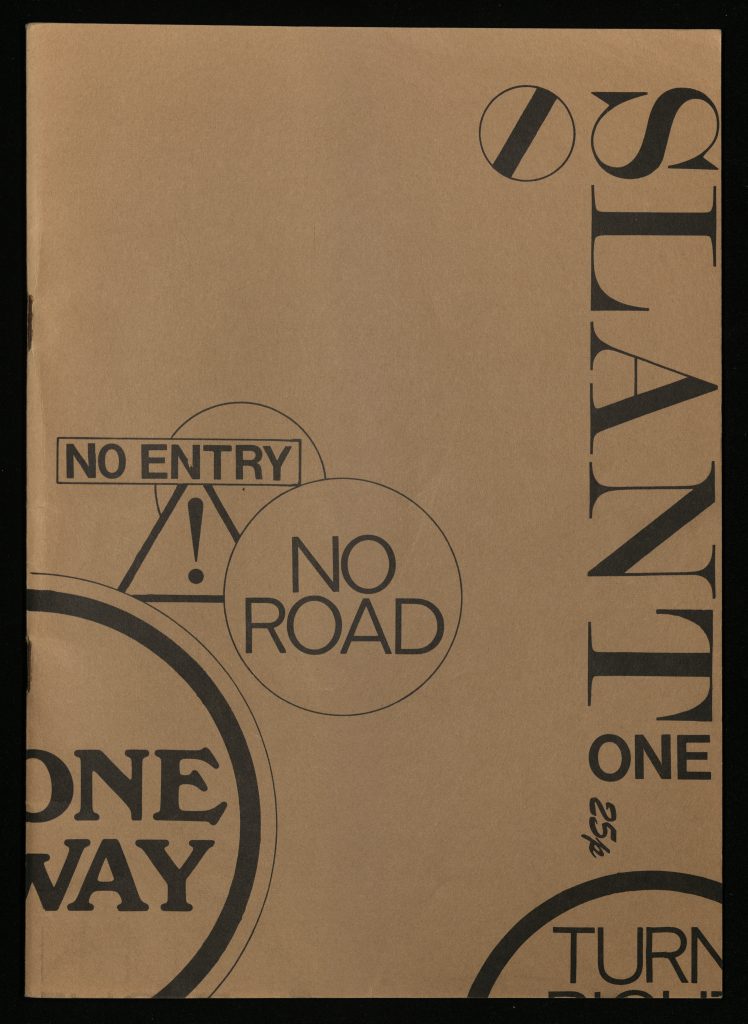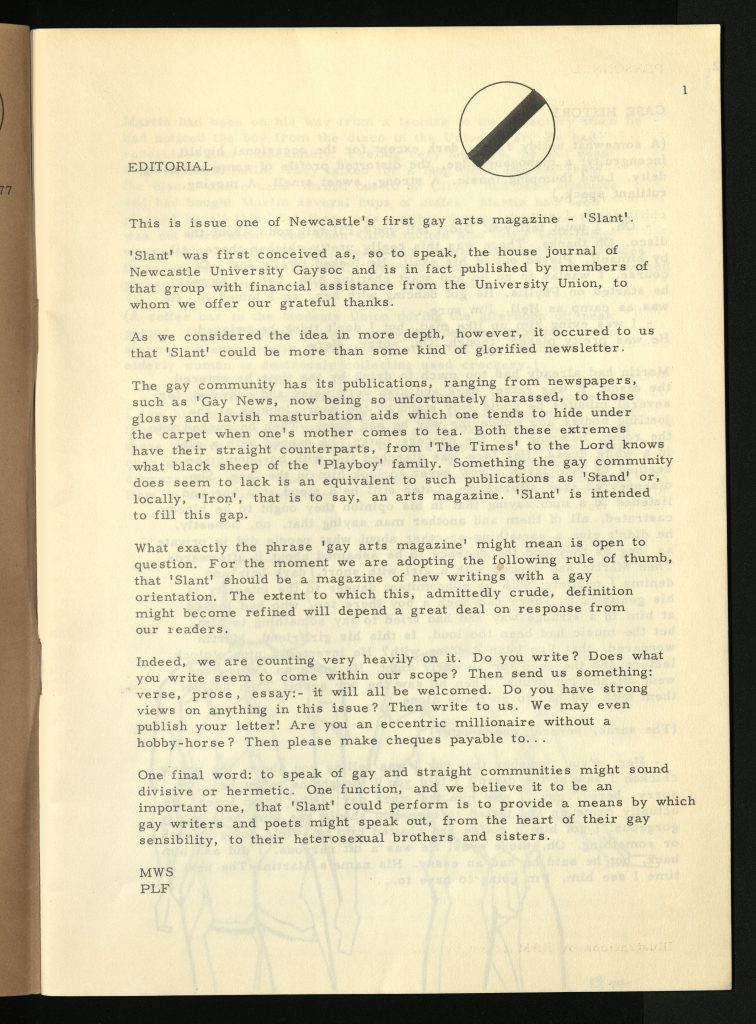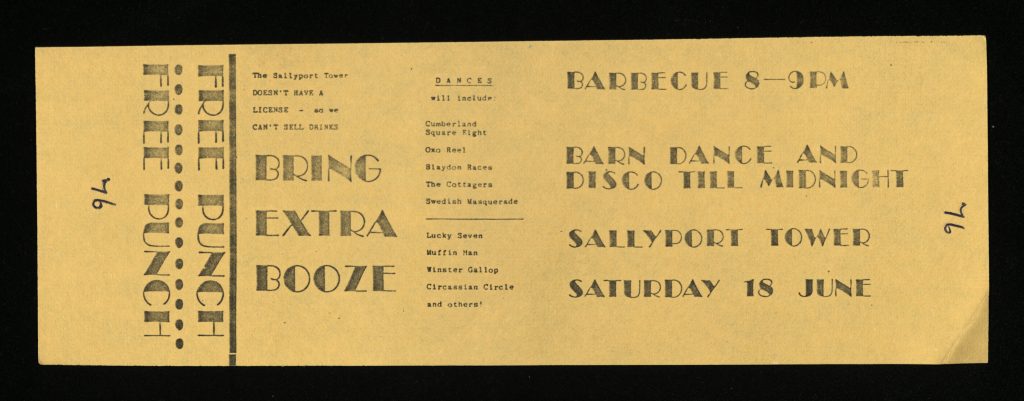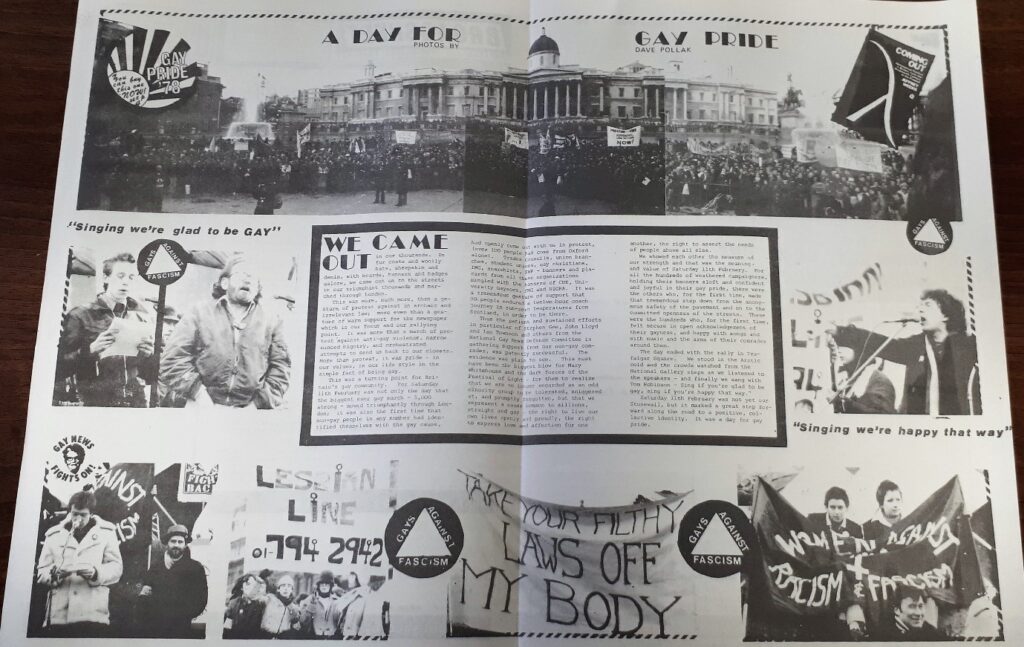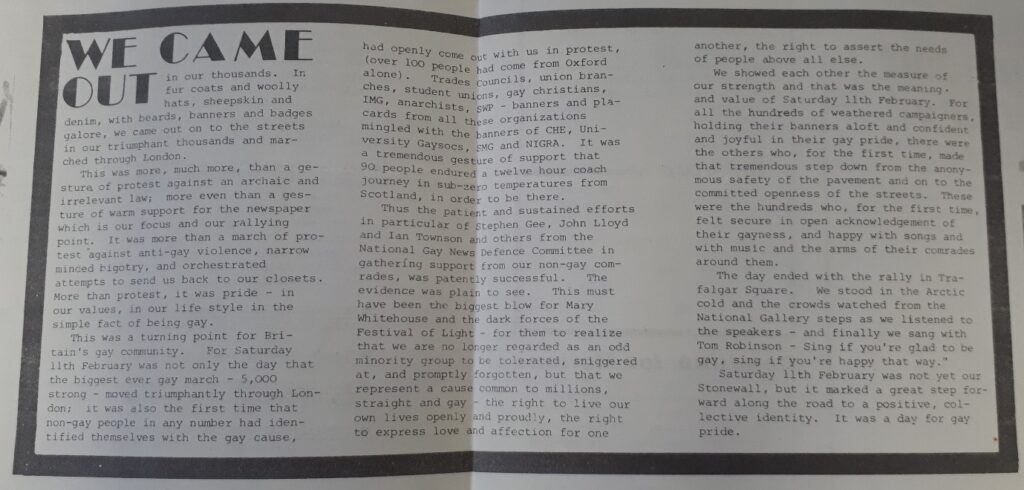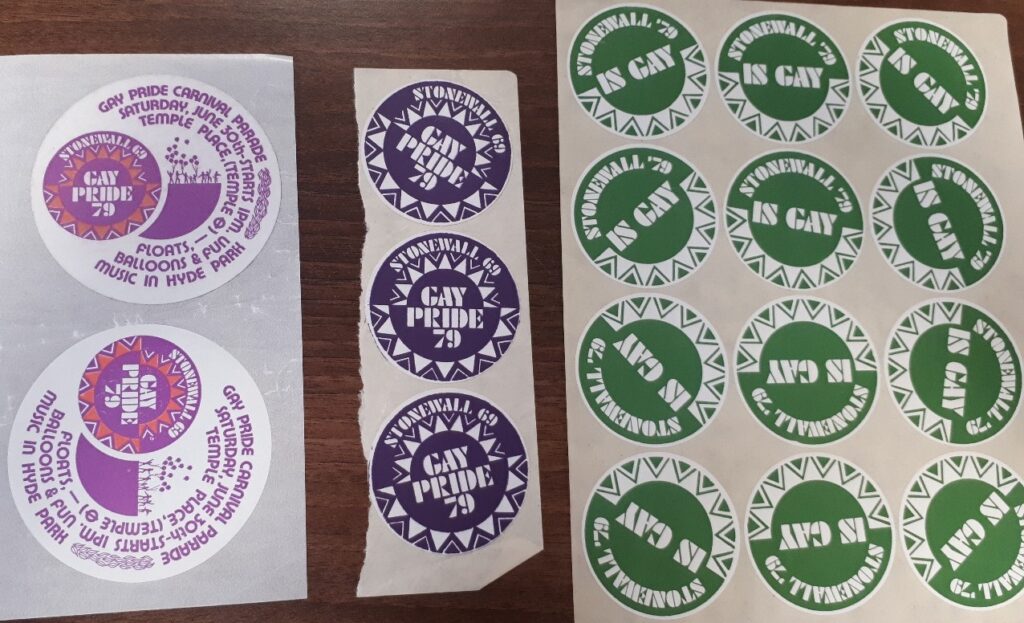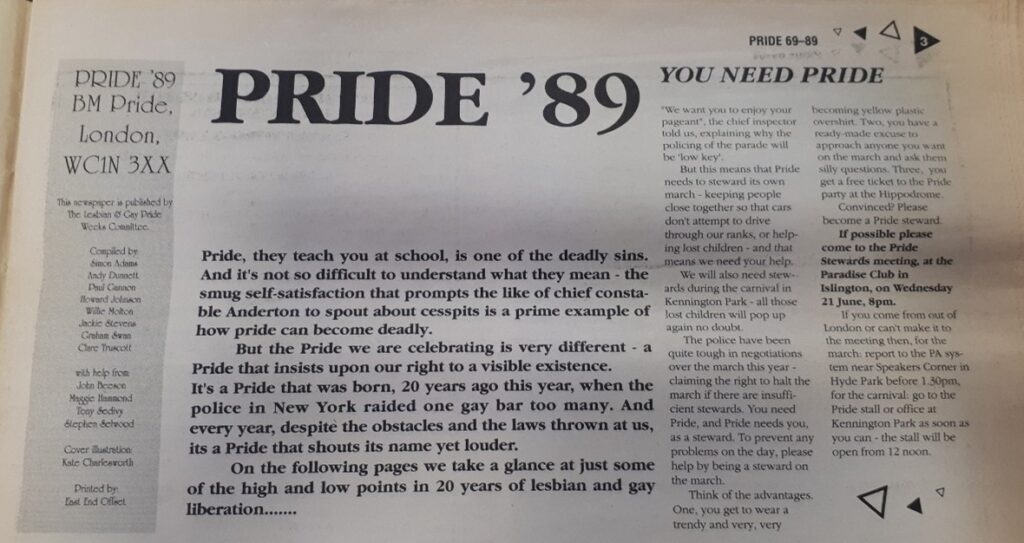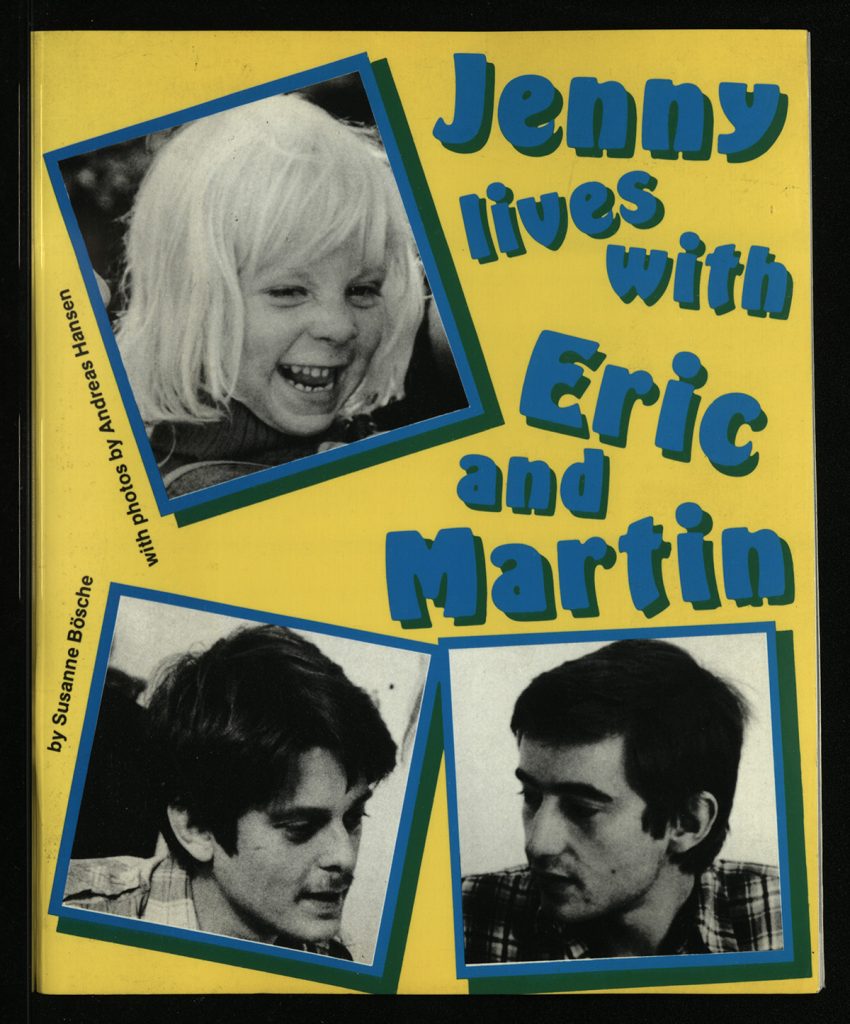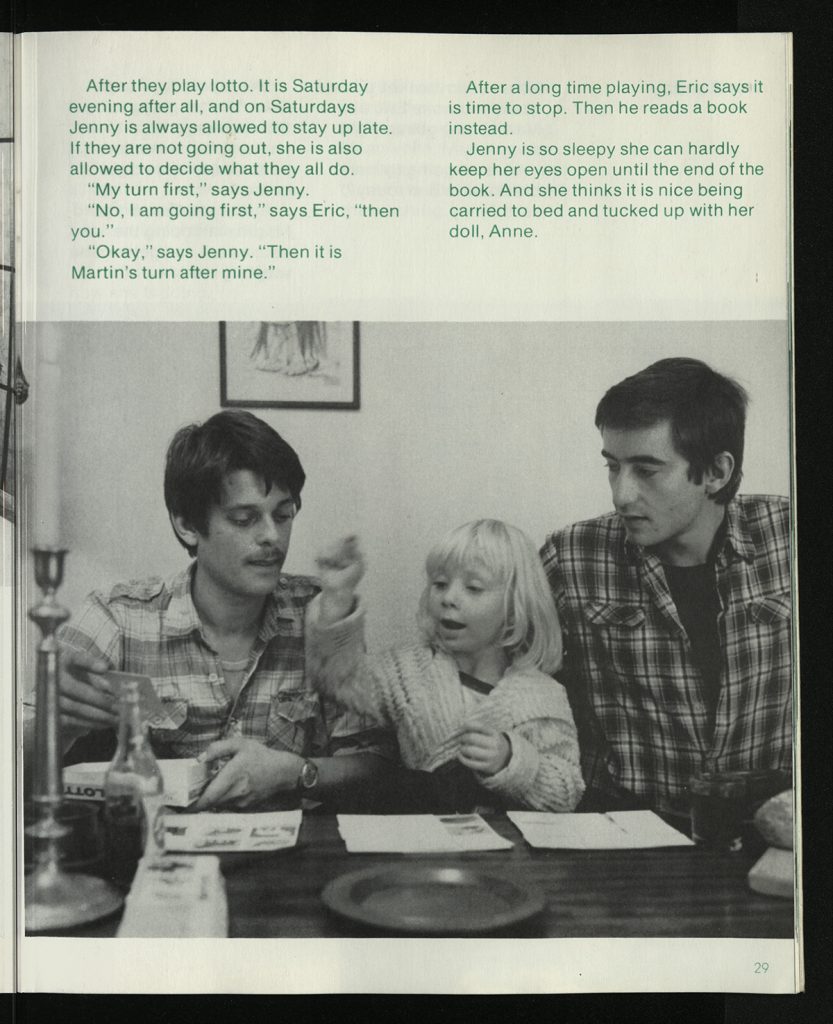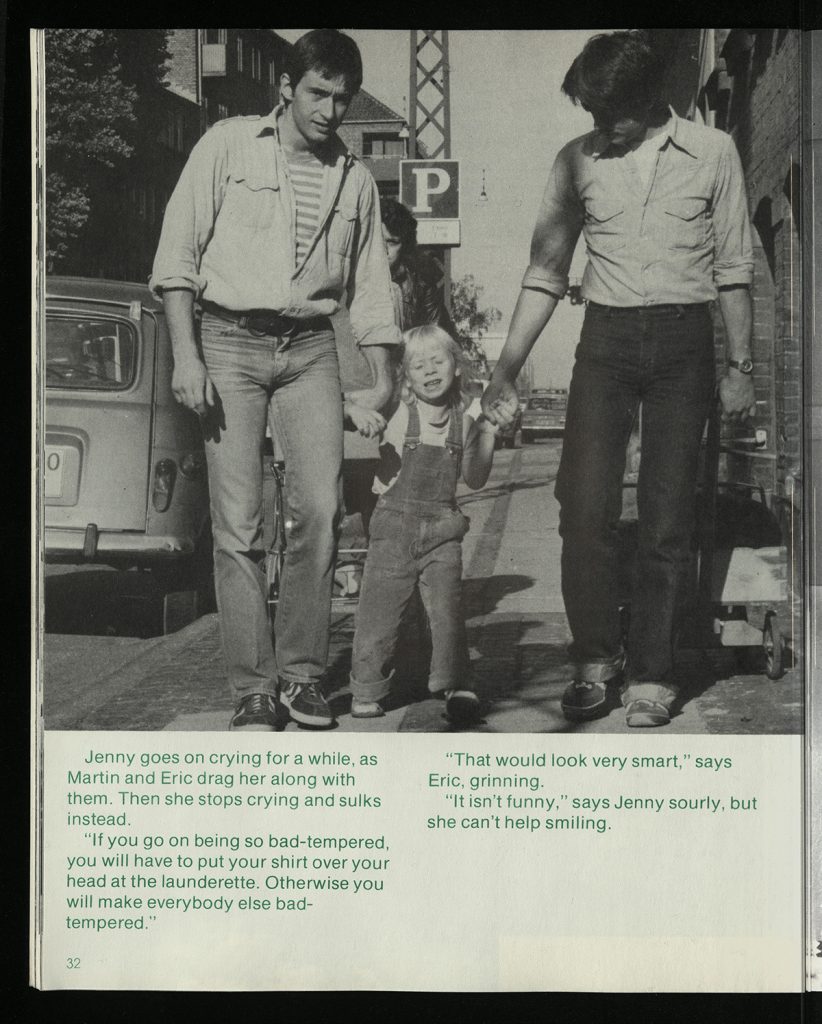The Tyneside Campaign for Homosexual Equality (CHE) was formed in 1972 as a local branch of the national Campaign for Homosexual Equality. The Tyneside CHE Archive held in Special Collections and Archives at Newcastle University is one of the most complete records of CHE in the UK.
As Pride Month draws to a close, we reflect on the importance of art, music and culture in the early days of Tyneside CHE through extracts from the archive.
In the early days of the LGBTQ+ movement in the UK, criminalisation, discrimination, social exclusion and stigmatisation were widespread for its members.
Against this backdrop, art, music and culture, and the social bonds which both created and resulted from them, became powerful tools of resistance and self-expression for the LGBTQ+ community, forming the cultural backbone of a growing movement. Nationally, and internationally, artists, musicians and cultural spaces became lifelines for members of the LGBTQ+ community, and through the Tyneside CHE archive we can see the same unfolding at a local level.
In the early Tyneside CHE newsletters, regular committee business and political matters are interspersed with cultural gatherings and events throughout. In June 1976, plans included a trip to watch the York Mystery Plays and an outing to the Tyneside Cinema to see the film A Bigger Splash, a film significant for its treatment of gay themes.
As well as organised trips, in-house events and productions formed a very significant part of Tyneside CHE’s activities too, from regular film nights and coffee mornings hosted in members’ own homes, to an organised street theatre group which made regular performances on Newcastle’s Northumberland Street. This production of Cinderfella in December 1980 was Tyneside CHE’s own take on a traditional festive pantomime.
Theatrical performances and arenas provided a relatively safe and creative space for LGBTQ+ individuals to express their identities, desires, and experiences. Tyneside CHE supported and hosted several touring productions of Gay Sweatshop, a London-based theatre company and the first gay theatre company, which was formed to counteract prevailing misconceptions about homosexuals and promote awareness of sexual oppression experienced by the gay community. This ticket relates to a performance of the play Indiscreet in Newcastle on 17 December 1976.
![Ticket proofs for performance of All our Yester-Gays by the Consenting Adults in Public theatre company in Newcastle, 12 August [1976?]](https://blogs.ncl.ac.uk/speccoll/files/2025/06/CHE-01-05-3-crop-752x1024.jpg)
Arts magazines played a crucial role in the early LGBTQ+ movement, by providing a space for expression, visibility, and community when mainstream media marginalized or ignored LGBTQ+ voices. Newcastle’s first gay arts magazine Slant was published in February 1977 by Newcastle University’s Gaysoc, with assistance from the Student’s Union. According to the Editorial in its first edition, it was formed “to be a magazine of new writings with a gay orientation” and “to provide a means by which gay writers and poets might speak out, from the heart of their gay sensibility to their heterosexual brothers and sisters”.
As Tyneside CHE arrived at its ten-year anniversary in 1982, celebrations included a barn dance featuring many traditional and well-known country dances and tunes, including Cumberland Square Eight, Lucky Seven, Winster Galop and the Blaydon Races, again demonstrating the continued importance of culture in unifying and strengthening the movement and its members, and of community gatherings that defied repression and laid the groundwork for LGBTQ+ visibility and activism.
Browse and search the Tyneside Campaign for Homosexual Equality (Tyneside CHE) Archive
Read our blog post on celebrating 50 years of Pride
See our Finding their Voices exhibition which celebrates the many diverse voices present within our collections.
See our exhibition on The North’s Forgotten Female Reformers which examines the role of women in Tyneside CHE

